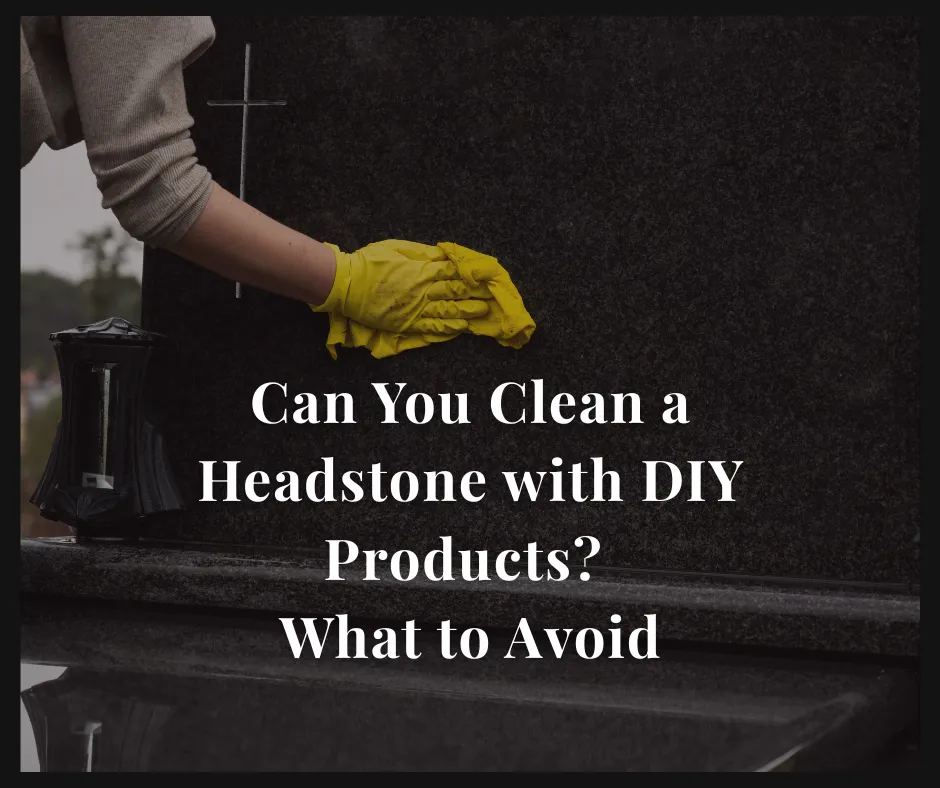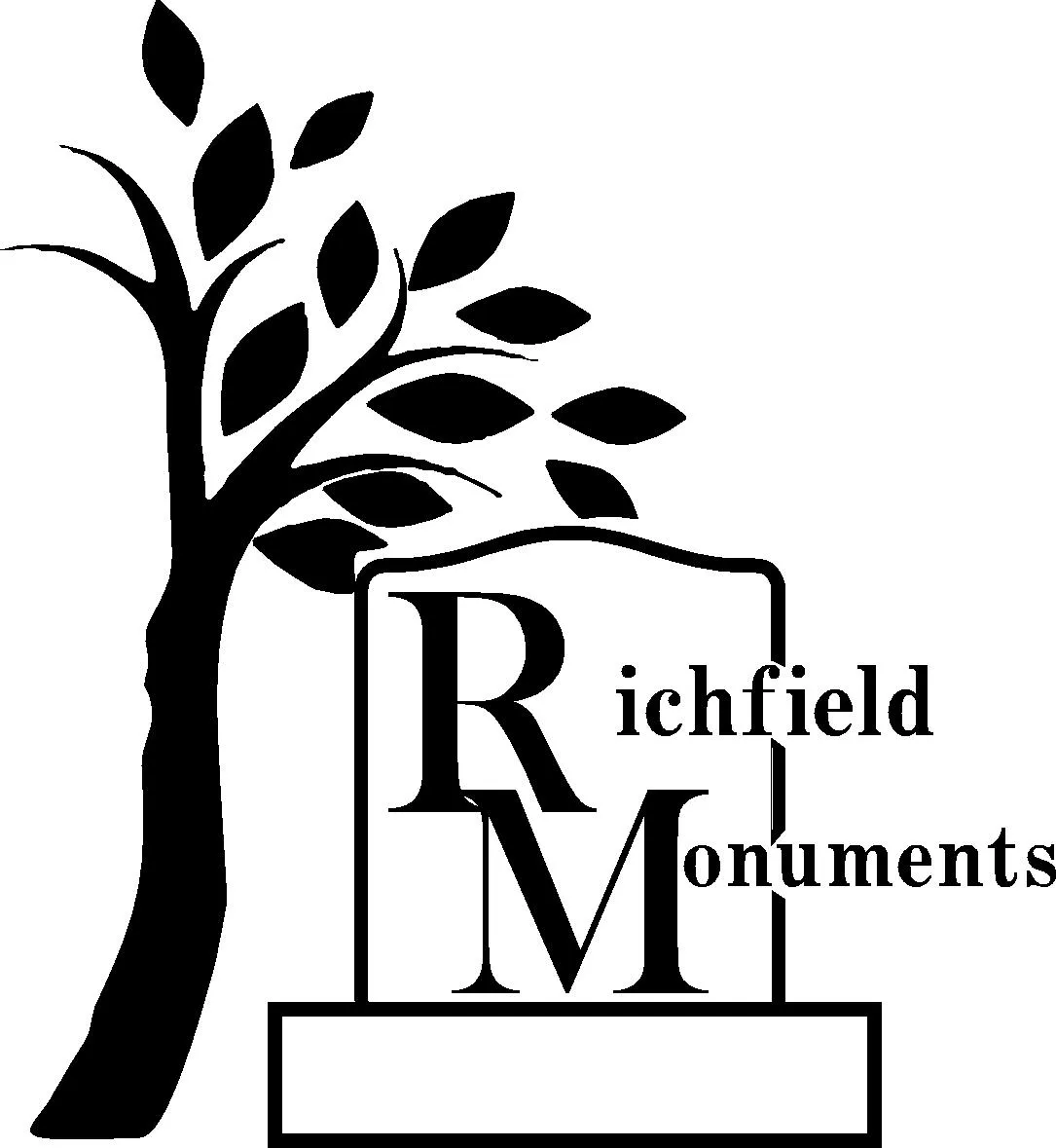Welcome to Our Blog Page!
If you have any questions, please feel free to reach out to us!

Can Headstones Be Cleaned with DIY Products? What to Avoid
Over time, even the most beautiful headstones can become discolored, stained, or covered with moss and mildew — especially in Utah’s ever-changing climate. It’s natural for families to want to clean a loved one’s monument themselves, but the question is:
Can headstones be cleaned with DIY products safely — or can that do more harm than good?
The short answer: Yes, headstones can be cleaned at home, but only with the right techniques and materials. Using the wrong products could permanently damage the stone or even violate cemetery guidelines.
Let’s walk through safe ways to clean grave markers, what products to avoid, and how to protect your investment in a memorial — especially if you’re caring for granite headstones or older gravestones in Central Utah.

What Types of Headstones Can Be Safely Cleaned?
Before you grab a brush, it’s important to understand the type of stone you’re dealing with. Different materials require different care.
Granite Headstones
Granite is the most durable and common material in modern grave markers across Utah. It handles DIY cleaning well — if you use gentle methods.
Marble & Sandstone
These softer stones are more sensitive. They can be scratched or etched by harsh cleaners and require extra care or professional cleaning.
Painted or Gold-Lettered Inscriptions
Avoid cleaning over painted or gold leaf inscriptions — they can wear off easily.
Safe DIY Cleaning Methods for Headstones
If you’re maintaining a headstone in Richfield, Salina, or anywhere in Central Utah, here’s how to do it safely:
Step 1: Basic Supplies
A soft-bristled brush (no wire or metal)
Distilled water (Utah’s hard tap water can leave residue)
A clean, non-abrasive cloth or sponge
Optional: D/2 Biological Solution (safe for use on headstones)
Step 2: Gently Rinse
Start by rinsing the headstone with distilled water. Avoid pressure washers, which can erode inscriptions.
Step 3: Scrub Lightly
Use your brush or cloth to remove dirt, algae, or bird droppings. Always scrub in circular motions and test a small area first.
Step 4: Final Rinse
Rinse again with clean water and let the headstone air dry naturally.
Pro Tip: Do this on a mild day (not during a freeze or direct heat) to avoid thermal shock to the stone.

What DIY Products to Avoid on Headstones
This is where many people unintentionally cause damage. Here are cleaners you should never use on grave markers or gravestones:
Bleach or household cleaners – Can stain or weaken stone
Vinegar or lemon juice – Acidic and can etch marble or sandstone
Power washers – Can crack or chip inscriptions
Ammonia-based cleaners – May react with minerals in the stone
Abrasive scrubbing pads or steel wool – Scratch surfaces permanently
Many Utah cemeteries — especially older ones — will prohibit harsh cleaning methods to preserve historic monuments.
What About Mold, Algae, or Lichen?
Utah’s fluctuating weather — snow, dry heat, and irrigation runoff — can encourage biological growth on gravestones. If a headstone has green or black patches:
D/2 Biological Solution is recommended by cemetery conservators nationwide (and used at Arlington National Cemetery)
Avoid scraping or chiseling — it can cause deep damage
You can find D/2 online or ask a local monument company like Richfield Monuments for help with proper cleaning products.
When to Call a Professional Monument Cleaner

There are times when DIY cleaning isn’t enough — or may cause more harm than good. Call a local expert in Central Utah if:
The stone is severely stained or crumbling
Inscriptions are fading or delicate
It’s a historic or military headstone
You want restoration or re-engraving done
At Richfield Monuments, we offer repair, and headstone restoration services across Sevier County and surrounding areas. We’ll preserve your family’s legacy with care and respect.
Final Thoughts
Yes, you can clean headstones yourself, but only if you use the right methods and avoid damaging products. DIY headstone care can be a meaningful act of remembrance — just make sure you’re doing it safely.
If you're unsure about the condition of your loved one’s grave marker or want it restored to its original beauty, we're here to help. Richfield Monuments serves families across Central Utah with affordable, respectful memorial maintenance and upgrades.
Contact us today for advice or a free consultation.

Facebook
Instagram